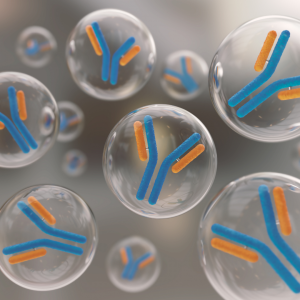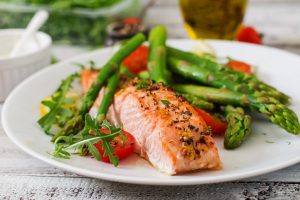COVID-19 News 
by Dr. Richard Parker
Just as predicted in the spring by public health experts, COVID-19 cases are spiking across the globe in what is being called a second wave. The upper Midwest seems to be the epicenter of the spike in the US, led by massive numbers of new cases in Wisconsin. Unfortunately the shear number of new cases is beginning to strain multiple regional healthcare systems. The spike of new COVID-19 cases is also starting to occur across California including San Diego County. San Diego’s new case count is now 400-500 per day. Fortunately, the San Diego County death count has stayed steady at 2-4 deaths per day despite the rise in cases reported. As the pandemic continues to wreak havoc on the economy, job security for many, and the world’s collective psyche, the politicization of the disease has unfortunately created additional and unnecessary confusion and anxiety. The following is a brief synopsis of recent news regarding COVID-19. We hope our periodic updates will help our patients stay focused on the continually growing body of science as the driver of our individual and collective decision-making and help keep us all well grounded in our approach to this crazy pandemic.
Vaccine news:
There has been some encouraging news this week regarding the efficacy of one prominent vaccine presently in the developmental pipeline. An article in Science Magazine titled “Champagne and questions greet first data showing that a COVID-19 vaccine works” discusses these findings.
Pfizer and its German partner BioNTech announced results of their vaccine candidate in a press release on November 9, 2020. Interim analysis found that the vaccine, which uses a revolutionary messenger RNA (M-RNA) technology, was more than 90% effective at preventing symptomatic cases of COVID-19. Pfizer says it could seek an emergency use authorization (EUA) for the vaccine from the U.S. Food and Drug Administration (FDA) in the next few weeks. The Pfizer-BioNTech coronavirus vaccine could protect patients from the virus for a year, BioNTech CEO Ugur Sahin told “Mornings with Maria” on the Fox News.
“There’s a good chance that the vaccine not only is protective but could protect from infection or reinfection for a significant period of time,” Sahin said. “I personally expect that a vaccine could protect us … for at least one year. If we learn that we need to reimmunize, we could do that after one year.”
Pfizer’s efficacy trial has enrolled more than 44,000 people at 154 clinical research sites, most of which are in the U.S. FDA guidelines say before a company can seek an EUA, two months must pass after at least half of the participants in a vaccine trial have received all of their doses. That point is about two weeks from now which means an EUA could be approved by late November.
Pfizer has entered an agreement to sell the U.S. government 100 million doses of their vaccine. Each person requires two doses, and Pfizer/BioNTech have produced only 500,000 doses, although they expect to have 50 million by the end of the year. By 2021, the companies project they can produce 1.3 billion doses.
Nearly 50 other COVID-19 vaccines are in clinical trials. Nine of those have reached the efficacy phase. Another high profile company utilizing M-RNA technology, Moderna, could also have efficacy data available this month.
Several experts have weighed in on the news and offer perspective, as many questions remain unanswered about vaccine related immunity. Georgetown University’s Jesse Goodman, who was formerly the chief scientist at the FDA reminds us: “There is little known about how long the immunity triggered by the vaccine will last, whether it can prevent severe COVID-19, and whether it will slow transmission rates if it’s used widely in a population. It’s unclear how well it works in the elderly, who suffer the most from SARS-CoV-2. The vaccine, based on a simple strand of messenger RNA (mRNA), has to be kept at frigid temperatures below –80°C to preserve the genetic material, and making and delivering it to hundreds of millions—if not billions—of people remain huge challenges.”
Dr. Anthony Fauci, head of the U.S. National Institute of Allergy and Infectious Diseases and a member of the White House’s Coronavirus Task Force, calls the data “very real” and “phenomenal.” But the pandemic “is not a light switch that you can turn on and off,” he says. “We still have to pay very close attention. Masks, social distancing, avoiding crowds, and hand washing—that is not going to go away, no matter how effective a vaccine is, because it’s going to take a while to get the country vaccinated to the point that you no longer are in an epidemic stage.”
Dr. Fauci perhaps best summed up his advice in a November 12 Chatham House Webinar on Living With COVID-19 below.
“The cavalry is coming but don’t put your weapons down, you better keep fighting because they are not here yet. Help is on the way, but it isn’t here yet.”
Psychiatric illness associated with COVID-19 recovery:
Research at the University of Oxford, using electronic health records for 69.8 million patients in the U.S., including more than 62,000 diagnosed with COVID-19 has found that nearly one person in five diagnosed with COVID-19 is diagnosed with a psychiatric disorder such as anxiety, depression or insomnia within three months of diagnosis.
“The incidence of any psychiatric diagnosis in the 14 to 90 days after COVID-19 diagnosis was 18.1%.” The research was published on 11/9/2020 in Lancet Psychiatry.
People recovering from COVID-19 were about twice as likely to be diagnosed with a mental health disorder as compared with someone who had the flu, says Paul Harrison, professor of psychiatry at Oxford and one of the study’s authors.
“That was within just the first three months,” he says. “We of course don’t know, in longer-term follow-ups, whether these risks will go on increasing — or whether once you get to three months, then the risks after you’ve had COVID really go back to the baseline risks that all of us experience.”
COVID-19 therapeutics: 
On 11/9/2020, the U.S. Food and Drug Administration issued an emergency use authorization (EUA) for the investigational monoclonal antibody therapy bamlanivimab for the treatment of mild-to-moderate COVID-19 in adult and pediatric patients.
Bamlanivimab, a drug similar in design to the polyclonal antibody cocktail produced by Regeneron and made famous when used to effectively treat President Trump last month, is a monoclonal antibody that is specifically directed against the spike protein of SARS-CoV-2. It is designed to block the virus’ attachment and entry into human cells. Monoclonal antibodies are laboratory-made proteins that mimic our own antibodies produced when our immune system is exposed to new pathogens like the COVID-19 virus.
Evidence that bamlanivimab may be effective came from data related to patients at high risk for disease progression including hospitalizations and emergency room visits. Dangerous disease progression occurred in 3% of bamlanivimab-treated patients on average compared to 10% in placebo-treated patients.
As we approach the holiday season, SDSM physicians strongly urge all of our patients to stay vigilant with regard to COVID-19 prevention measures. It turns out that proper use of masks, avoidance of large gatherings and good hand hygiene practices are incredibly effective in preventing spread. As we creep closer to effective vaccines and improved therapeutics do your best to resist “COVID fatigue.” Hang in there for a few more months and we will all make it safely through this pandemic.
Holidays and Healthi-ER Eating 
By Linda Illingworth, RDN
Wouldn’t it be nice if January didn’t include any weight loss resolution? Americans gain an average of about 11 pounds through Thanksgiving and New Year’s. If you’ve already been struggling with what is now being referred to as ‘the COVID 15’, at minimum you need a plan to maintain your weight as we head into the season of overeating. Start practicing some of these healthier choices now and keep it up right through the holidays. While you can take the day of the holiday to indulge, get back on track soon after. You might be surprised to find you’ve even lost a few pounds.
Close the kitchen after dinner.
Rarely do after-dinner noshes add valuable nutrients. Rather, they are most often sources of unhealthy fats and sugars that increases inflammation and provide excess fuel. Our bodies are designed to handle more fuel or calories during the day and less at night. There is a unique chronicity or circadian rhythm for most organs, and intestines are no exception. Our intestines work hard to regulate the absorption of nutrients during the day and are designed to rest at night. This resting phase allows more fuel to be absorbed during the night-time hours. Most of the cells in our body also go into rest mode at night, making them less sensitive to insulin. That leaves too much glucose in the blood and leads to inflammation. This excess fuel ends up in our fat cells and you guessed it, we gain weight. Simply closing the kitchen after dinner can be a game changer.
Cut your alcohol intake in half.
Alcohol is an appetite stimulant and a behavioral disinhibitor. So, when you imbibe you are more likely to overeat and depart from your plan of eating a salad for dinner. Absorption of alcohol is rapid, much of it happening in the stomach and some even in the mouth. This makes its effect almost immediate. It also provides calories without significant amounts of antioxidants. Cutting your alcohol intake in half helps control your appetite, calorie intake, and inflammation. If you want to look fabulous during the holidays, abstain from alcohol for a few weeks. Not only might you lose a few pounds, but your skin may be less red, less puffy and have a healthy glow.
Get a handle on your sugar consumption.
Excessive intake of simple sugars is one of the biggest drivers of inflammation and metabolic harm to the body. Sugar that cannot be utilized by our cells for energy ends up in the dump—the sugar is converted to fat and stored in fat cells. While having some fat on our bodies is healthy, a body that is overloaded with fuel will begin to make deposits in other places too. The liver can be invaded with fat, arteries get lined with plaque creating heart disease, and the brain can suffer with increased fat deposits believed to ‘not enhance’ brain functions.
Americans consume about 57 pounds of added sugar each year. A little over two generations ago, consumption of sweeteners was closer to two pounds per year. The current recommendation for men is to limit the intake of added sugars to 36 g/day, women to 24 g/day, and children to 9 g/day. Simply cutting down on added sugars from sodas to pasta sauce can help you lose weight and reduce inflammation that leads to heart disease, diabetes, and even cancers. SugarScience.com is a great resource to learn more about added sugar, where to find it, and how to reduce your intake.
Practicing healthy nutrition habits each day means you can indulge on the holiday itself ‘guilt free’, knowing you’ll be right back on track soon after. And maybe even say farewell to ‘the COVID-15’ as you ring in the New Year.
Special Holiday Hours:
Our offices will have special hours for the Thanksgiving Holiday, so please plan ahead if you need prescriptions or an appointment. We are happy to help!
ALVARADO: Closed November 26 and 27
SORRENTO VALLEY: Closed November 26 and 27
PHYSICAL THERAPY: Closed November 26 and 27
URGENT CARE
PACIFIC BEACH: Closed November 26
OPEN 8 am – 4 pm November 27, 28, 29
(Friday, Saturday and Sunday)
POINT LOMA: OPEN 8 am – 12pm Wed. November 25
Closed November 26 and 27
Stay safe San Diego.
COVID-19 is on all of our minds as San Diego embarks on a new tier that may shape our plans for a different holiday season. Be sure to check travel advisories to stay informed of testing and quarantine requirements. California, Oregon, and Washington are currently recommending a 14-day quarantine for anyone arriving to these states to prevent the spread of COVID-19.
Don’t forget to keep up with important checks on your health and refill prescriptions to avoid any lapses in taking your medications. Telehealth visits are still available and we are just a phone call away to meet your needs. Chronic conditions that may increase risk of worse COVID-19 symptoms include diabetes, asthma, COPD, heart problems, impaired immune function, difficulty getting enough sleep, or high levels of stress. It’s important to maintain your health if you have a chronic condition. Ask us about COVID-19 testing and let us help manage your symptoms if you get sick. We are here for you whether you need a well check, advice on testing or care for COVID-19, or have any other health care need. Our Urgent Care office in Pacific Beach is always available to you. Simply call first so we can be sure to see you safely in clinic.
SDSM is dedicated to practicing all CDC recommended infection control measures. Clinics disinfect between each patient interaction with CDC approved disinfectants, employ proper social distancing measures, and follow additional CDC infection control guidelines. When visiting our clinics you can expect fewer people in waiting rooms, to wear a mask or face covering, use hand sanitizer on entry, and be screened for COVID-19 symptoms before entering patient care areas.
Don’t forget telemedicine appointments are an option that can save you time and travel. We are experts in telemedicine and can coach you on self-care at home, provide advice on medications or necessary prescriptions, and can evaluate your need for an in-person visit. We continue to recommend that anyone with cold/flu/COVID-19 symptoms and patients at increased risk of complications from COVID-19 are best addressed through telemedicine appointments.
Please call us if you feel ill, even if you believe you had no exposure to someone who has been sick. Whether you have been practicing stay at home measures, traveling, or out in the community, take care to wear a mask, practice a minimum of six foot social distance from others, wash your hands frequently, and avoid touching your face, mouth, and nose. Working together, we can help you to stay safe, healthy, and thrive.
Yours in health,
The Physicians and Staff of San Diego Sports Medicine and Family Health Center

